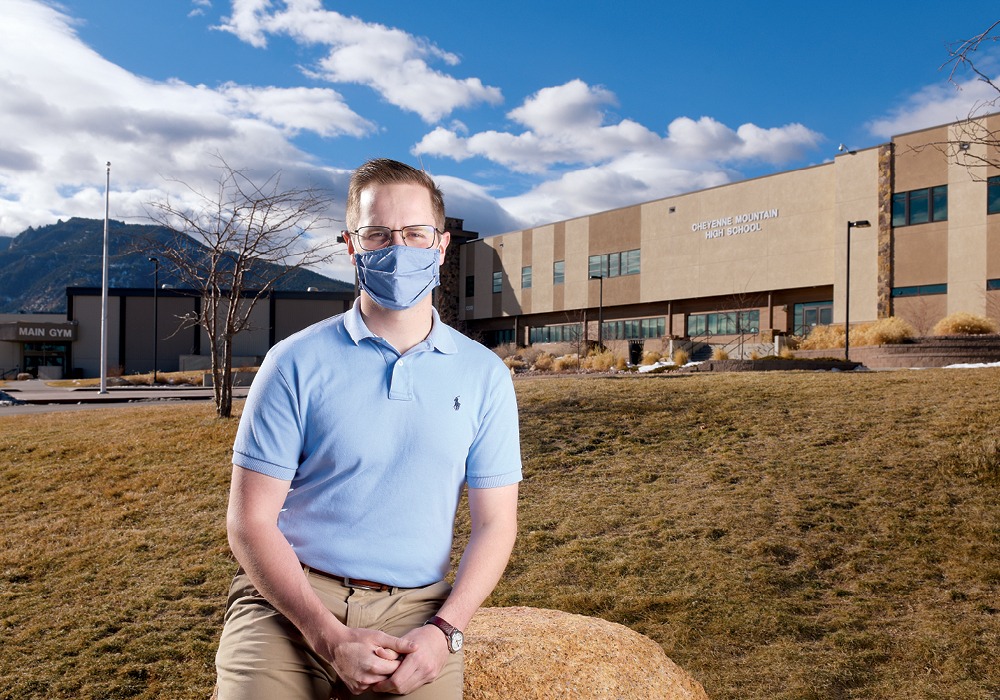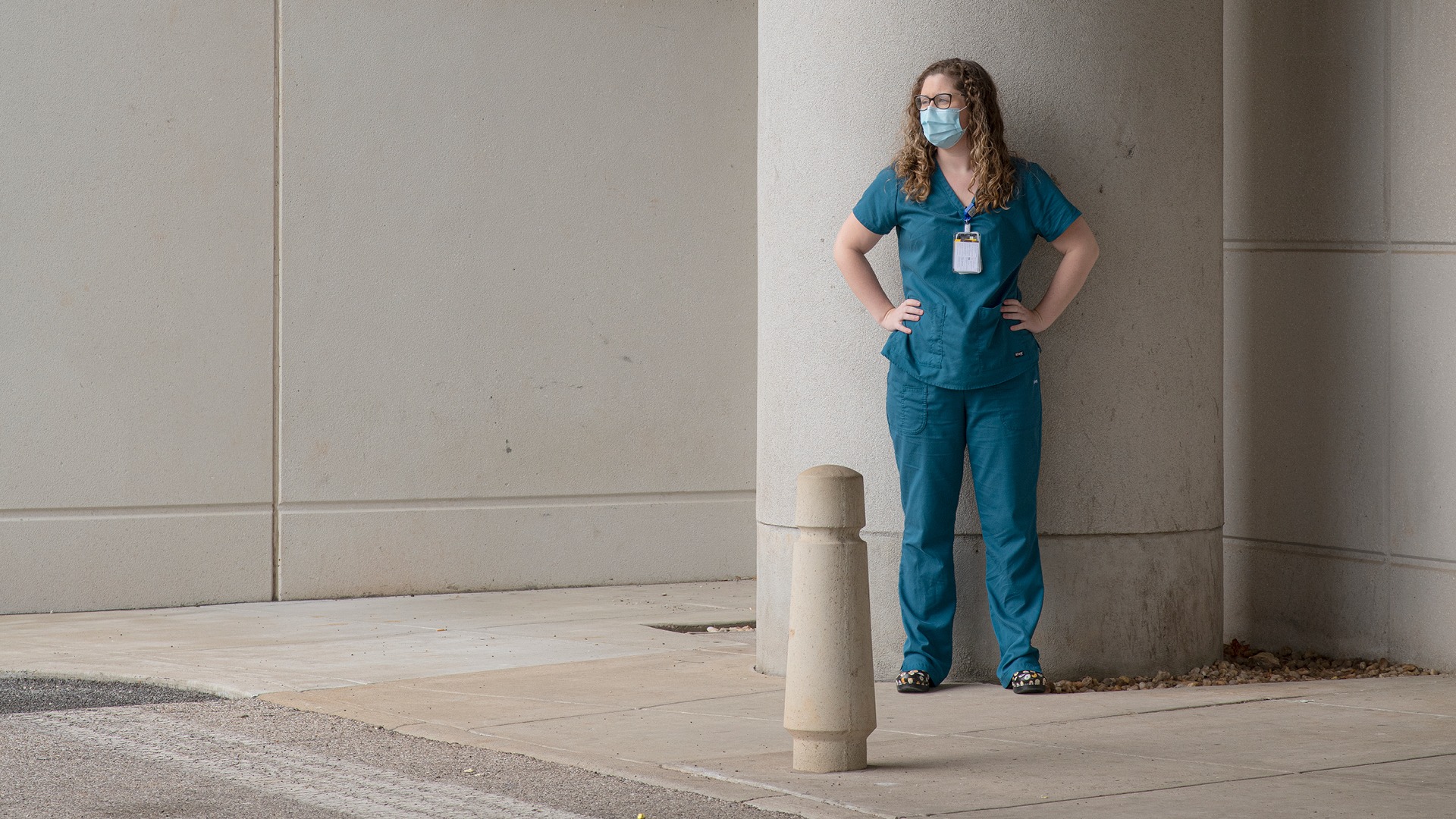McClead was among nearly 100 OHIO College of Health Sciences and Professions students who graduated early last spring to join the ranks of health care workers ministering to COVID-19 patients across the country. Now a nurse at Marietta Memorial Hospital, McClead says she has no regrets after her first tumultuous months on the job.
“I don’t think I ever second-guessed it or asked ‘Oh, what did I get myself into?’” she says. “I was ready to go and care for these patients. I was ready to be there for them when their family couldn’t be.”
Providing emotional support for patients whose loved ones cannot visit the hospital under the ongoing COVID-19 restrictions is a part of the job McClead feels especially suited for. In fact, it’s the reason she decided to become a nurse in the first place.
When McClead’s own father was hospitalized with a severe blood infection years ago, it was his nurses who kept McClead and her family informed and optimistic throughout his recovery. That attentiveness made a big impression on McClead, then a senior in high school, and has in many ways shaped her work at Marietta Memorial over the course of the pandemic.
She also experienced those restrictions personally when in mid-November she and her parents tested positive for COVID-19. McClead and her father had mild cases and were able to recover at home, but her mother was hospitalized
“I know it’s hard for nurses to call the families because we are so busy, but from my personal experience, I know how important it is to get those updates and how those loved ones at home are also worried about the patient,” she says.
More than 1,300 miles away, a fellow spring 2020 OHIO graduate started his career in another field vastly impacted by the global pandemic.

Matthew Kent, BSED ’20, started his teaching career last fall. His first two months on the job found him transitioning from remote to hybrid learning and then back to remote learning. Photo by Cyrus McCrimmon, BFA ’87
Matthew Kent, BSED ’20, moved across the country, accepting a position last fall at Cheyenne Mountain High School in Colorado Springs, Colorado. As a social studies teacher, his top concern wasn’t lesson planning—though he’s devoted hours to building his curriculum. It was building a relationship with his students.
“The top concern for me, academics aside, is my students’ social and emotional well-being,” he says. “It goes back to the question of ‘why did you want to become a teacher?’ To help kids out.”
Like many teachers, Kent’s job has been complicated by fluctuating COVID-19 numbers. When cases spiked last October in Cheyenne Mountain’s district, he and his colleagues were notified on a Sunday afternoon that the school was shifting from hybrid learning to completely online classes—within the next 20 hours.
It was a daunting task, but Kent’s focus was how to make the switch easier for his students.
“What helps this transition is a good rapport with students,” he says, something that usually develops naturally through in-person interaction over the course of the school year. For online instruction, Kent had to be more intentional about finding time within the 90-minute class periods for personal connection.
“I tell my students, ‘If you want to get on and talk to me about literally anything that last half hour of class, I’ll talk to you about it,’” he says. “I didn’t think I was going to get a whole lot of students to take me up on that, but it’s been overwhelming participation.”
The transition to online learning also helped him see his status as a first-year teacher as an unexpected advantage.
“Some of my colleagues that have been teaching at the school for a while, they had the entire first semester planned out. All that got tossed out of a window,” he says. “One of the silver linings for me is I’m not stressing about adapting and changing all my content. I’m creating all of it right now.”
It’s a mindset he wants to apply to whatever unexpected circumstances arise in his subsequent years teaching because, like McClead, Kent never doubted for a second that this is the profession for him.
“It’s difficult, it’s challenging, but at the same time, it’s what I signed up for,” he says. “I learned a lot of lessons this year I didn’t think I’d learn at this age, and I think I’m coming out of it as a better person.”




